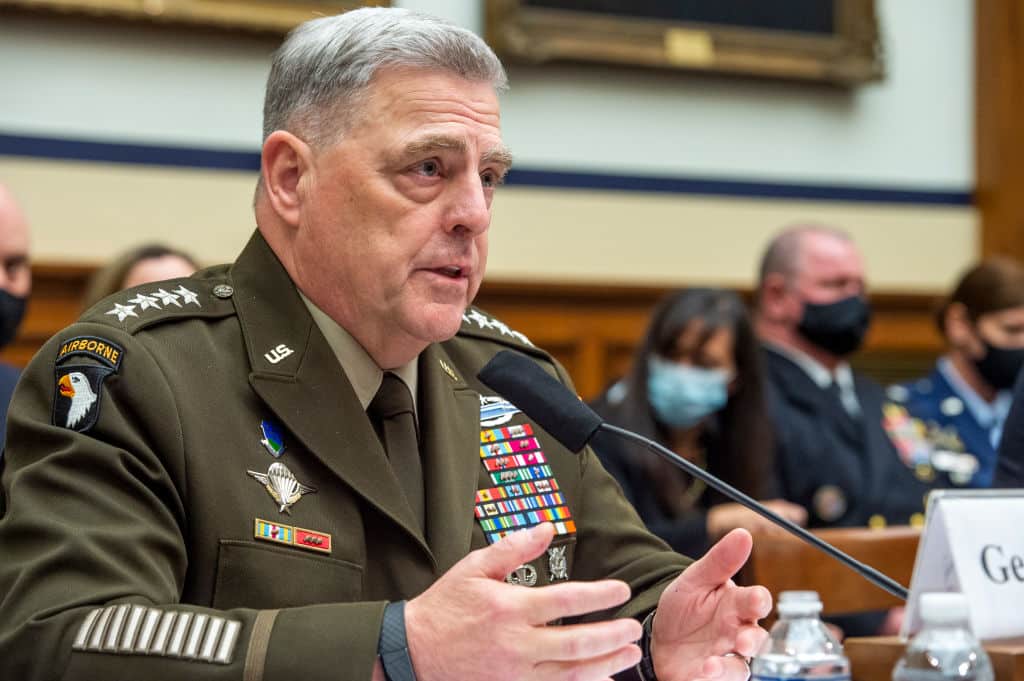When General Douglas MacArthur made a series of public and private comments contradicting President Truman’s orders in early 1951, he was fired. And when General George McClellan deliberately kept his army from fighting the rebels in a straight fight during the winter of 1861-1862, President Lincoln fired him.
Now, as the United States slowly comes to grips with its twenty-year disaster in Afghanistan, the conduct of our generals has again come under increasing scrutiny. On this week’s episode of the Drill Down podcast, Peter Schweizer and Eric Eggers are joined by Jack Posobiec, former military intelligence officer and now author, to put the spotlight on one of the most high-profile generals in recent memory: General Mark Milley.
On September 28th, General Milley spent most of the day under the proverbial heat of congressional testimony to answer a wide range of questions that call his ability to lead into doubt. Allegations made by well-known journalist Bob Woodward in his new book, Peril, claim that Milley made direct calls to the Chinese military to assure them no attack was underway, possibly subverting civilian control of the military in the process. While Milley has pushed back on Woodward’s claim, he has not been able to shake other accusations so easily.
When Milley joined President Trump in the, now infamous, photo-op during last summer’s major BLM protest in Washington, he stepped into the public eye in an overtly political manner. Milley eventually issued an apology saying it was a mistake, but the damage was done.
Throughout his career as a senior military commander during the War in Afghanistan, Milley has been wrong about the state of the conflict, saying the war was going well as far back as 2013. On this, Milley is more in line, although no less wrong, with his comrades in senior military leadership.
Calls for General Milley to resign or be fired have only grown in the months since. So as President Biden reorients American foreign policy to the Indo-Pacific, he needs to consider whether America’s generals should be above reproach or not.

